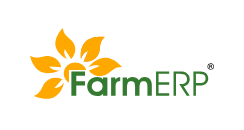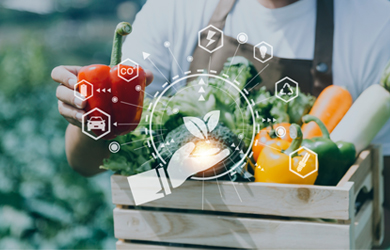Sustainable Farming Answer to Middle East’s Agriculture Needs
Sustainable agriculture is attracting a lot of attention, not only from agribusinesses but also from governmental organizations in the Middle East. With the aggravating issues of water scarcity and climate change in the region, stakeholders in the agriculture industry will have to take drastic measures to deal with potential perils that may hinder the industry’s growth. Governing bodies and policymakers in the Middle East also need to actuate a tectonic shift from traditional ways of managing agricultural businesses to next-generation technological tools that can boost their productivity as well as profitability amidst the rise of water crisis.
Being the world’s most water-scarce region, the Middle East and North Africa is facing high or very-high water stress on at least 70% of its gross domestic product (GDP). The World Bank also projects that water scarcity will reflect in the greatest economic losses in the region by 2050, estimating at around 6 to 14% of the region’s GDP. Governing bodies across the entire Middle East are already looking into the potential solutions that can mitigate the harsh impact of water scarcity on various industrial areas, especially when the region is aiming to diversify away from the oil & gas economy.
Sustainable Farming: The Future of Middle East’s Agriculture Industry
Apart from regional instability, the governing bodies in the Middle East are struggling to battle the problem of water scarcity, which is expected to have a significant impact on the business world in the region. The agriculture industry in the Middle East has been battling the age-old constraints of water scarcity, and it needs a collective effort made by the stakeholders including market players as well as governing bodies in the region.
Growing awareness about the importance of sustainability in farming practices is bringing in a significant change in how the agriculture industry operated in the Middle East. Governmental organizations in the Middle East will have to explore innovative and high-tech tools that can bolster the quality as well as quantity of agricultural produce in the region.
Next-gen Farm Management Systems to Supersede Traditional Farming Methods
A mounting number of agribusinesses in the region are making a move away from traditional and low-precision farming methods to adopt next-generation agriculture management systems. Leading farming businesses in the region are increasing investments in advanced farm management software to efficiently monitor and manage the water usage throughout the farming season.
With the advent of advanced crop management software, including farm ERP software, agribusinesses in the region can effectively tackle the problem of water scarcity and ensure high productivity and profitability. FarmERP is one of the best farm management software that is designed for all the stakeholders in the agricultural supply chain to implement sustainable agricultural practices throughout the entire value chain.
Governments Invest in Sustainable Farming and Offer Incentive Packages for AgTech Companies
Farm management platforms are being deployed by a mounting number of farming businesses and other stakeholders in their supply chain in the Middle East. In addition, governing bodies are also shifting their focus on promoting the use of technologically driven agricultural software solutions. The government’s vision for the agriculture industry in the region is expanding beyond traditional farming to achieve sustainable agriculture with the help of futuristic technologies.
In February 2018, the minister of climate change and environment for the UAE expressed his opinion on how innovation can help the world’s most arid region to tackle food security issues, at the annual Global Forum for Innovations in Agriculture (GFIA). At the same event, the Sumitomo Mitsui Banking Corporation (SMBC) of Japan joined forces with Abu Dhabi Farmers’ Services Centre (ADFSC) to bolster the use of technology to incorporate post-harvest techniques through modern agriculture practices, while controlling the use of natural resources such as soil and water to ensure agricultural sustainability.
In March 2019, the UAE Government announced that it will be supporting domestic as well as international AgTech companies that are established in the UAE, both financially and politically, through a series of incentives of around Dh1 billion (US$ 272 million). The Abu Dhabi government is aiming to boost the rise of agricultural technologies in the region through its new initiative – Abu Dhabi Government Accelerators Programme “Ghadan 21”, which is a three-year, $13.6 billion development plan that focuses on encouraging agricultural R&D to bolster sustainability with the help of technology.
FarmERP is one of the leading AgTech companies with the best-in-industry farm management software – FarmERP. FarmERP provides tech-driven crop management solutions that enable farmers to determine their water needs and consumption, which establishes a climate-resilient business. FarmERP aims to enable agricultural stakeholders to achieve high levels of sustainability amid the rise of water scarcity in the region and still maintain high productivity and profitability.





